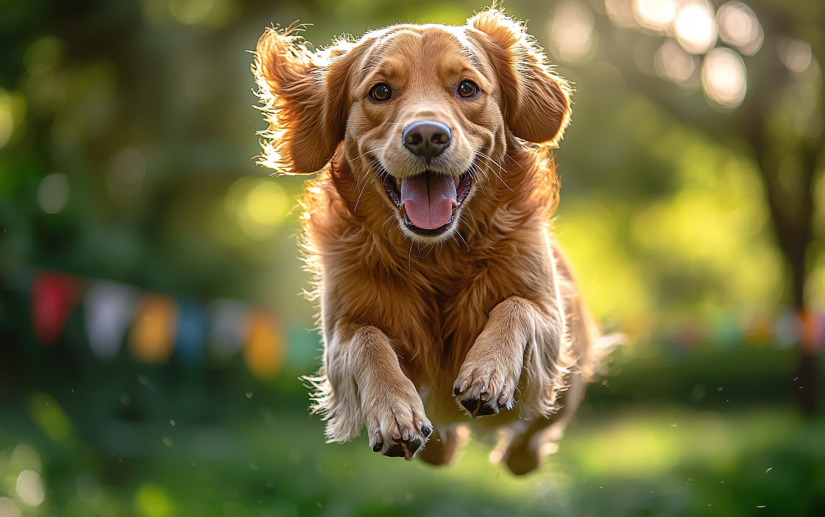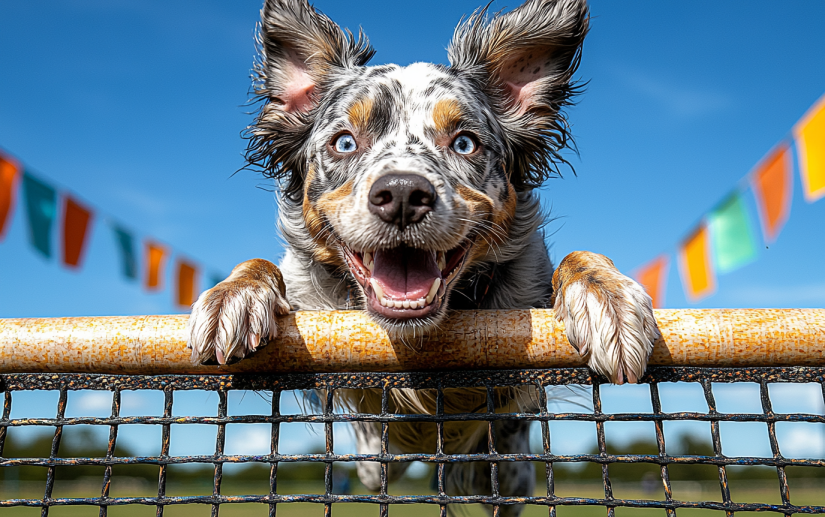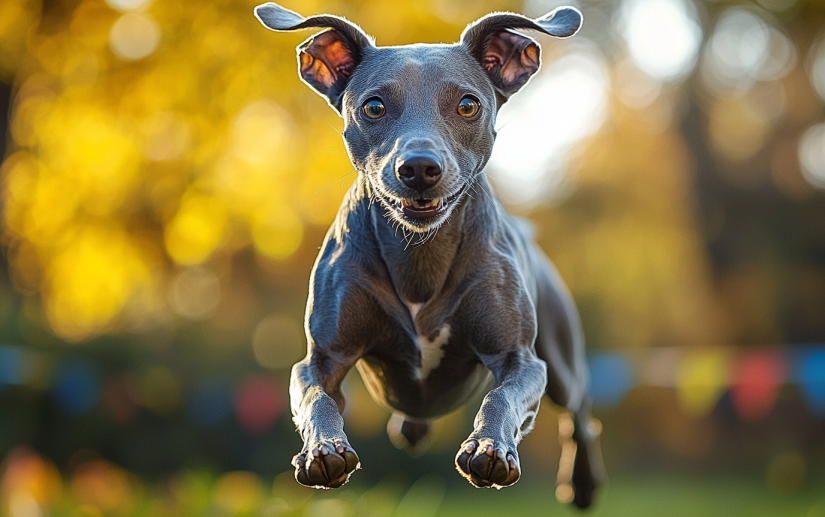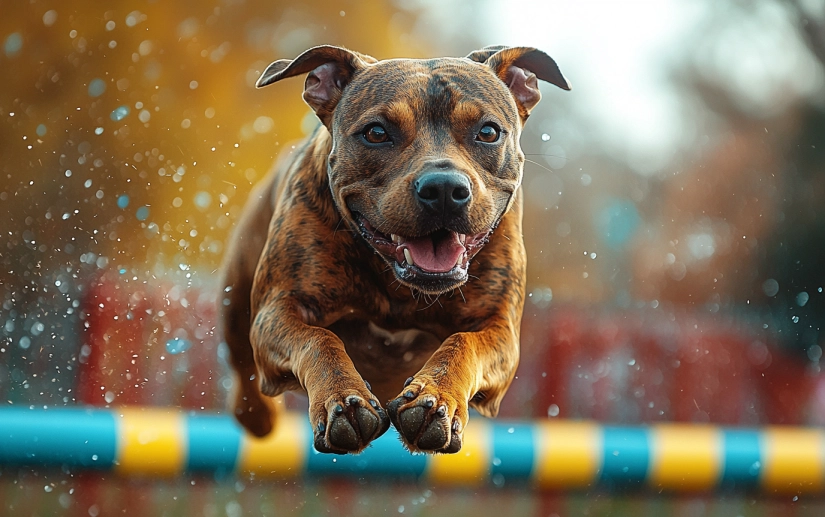What are Sporting Dog Breeds?
Sporting dog breeds are a group of dogs originally bred for hunting and retrieving game, particularly birds. Known for their high energy levels, intelligence, and versatility, these breeds excel at working alongside humans in the field, whether it be hunting waterfowl, flushing out game, or retrieving fallen birds. Their natural instincts to be active and engage in various tasks have made them excellent companions for those with an active lifestyle.
The American Kennel Club (AKC) categorizes these breeds as part of the “Sporting Group,” and they are often recognized for their friendly, outgoing personalities and need for both physical and mental stimulation. These dogs are typically affectionate, loyal, and highly trainable, which makes them ideal pets for families who enjoy outdoor activities and have the time and energy to invest in their care and training.
Popular Sporting Dog Breeds for Active Families
Now that you know what defines a sporting dog breed, let’s dive into some of the most popular and beloved breeds within this group. These dogs are not only fantastic hunting companions but also exceptional family dogs.
Labrador Retriever
Labrador Retrievers are one of the most popular dog breeds in the world, known for their friendly demeanor, intelligence, and versatility. Labs are excellent swimmers and have a strong instinct for retrieving, making them great hunting and sporting dogs. Their loving and easygoing personalities make them perfect for families with children, and they tend to get along well with other pets. They are highly trainable, loyal, and eager to please, which makes them ideal companions for active families who enjoy hiking, running, or playing fetch.
Key Traits:
- Weight: 55–80 pounds
- Lifespan: 10–12 years
- Exercise needs: High
- Temperament: Friendly, outgoing, loyal
Golden Retriever

Golden Retrievers share many similarities with Labs but have a unique charm of their own. With their beautiful golden coats and playful, affectionate nature, Goldens are great with children and make wonderful therapy dogs due to their gentle temperament. Like Labs, they are highly trainable and have a strong desire to retrieve, which makes them excellent sporting companions. Goldens are known for their love of water and their ability to adapt to a variety of active settings.
Key Traits:
- Weight: 55–75 pounds
- Lifespan: 10–12 years
- Exercise needs: High
- Temperament: Intelligent, friendly, reliable
Cocker Spaniel
Cocker Spaniels are smaller than Labradors and Golden Retrievers but pack plenty of energy and enthusiasm. Originally bred for flushing out game birds, they are great hunting dogs and thrive in environments where they can run and play. Despite their smaller size, they require regular exercise and mental stimulation to stay happy and healthy. Their affectionate nature makes them great companions, and they are well-suited for families with children. They are also known for their beautiful, silky coats, which require regular grooming.
Key Traits:
- Weight: 20–30 pounds
- Lifespan: 12–15 years
- Exercise needs: Moderate
- Temperament: Playful, affectionate, gentle
German Shorthaired Pointer
The German Shorthaired Pointer (GSP) is a high-energy breed that excels in hunting and retrieving. These dogs are known for their incredible endurance, agility, and versatility. GSPs thrive in active households where they have plenty of opportunities to run, explore, and engage in mentally stimulating activities. Their keen sense of smell and strong work ethic make them excellent hunting companions, but they are also wonderful family pets due to their loyalty and affection. However, they need plenty of space and regular exercise to prevent boredom and destructive behaviors.
Key Traits:
- Weight: 45–70 pounds
- Lifespan: 10–14 years
- Exercise needs: Very high
- Temperament: Energetic, intelligent, loyal
English Springer Spaniel
English Springer Spaniels are enthusiastic, friendly, and versatile sporting dogs. Originally bred for flushing and retrieving game birds, these dogs are highly active and require regular exercise. They have a strong sense of smell and a love for the outdoors, which makes them ideal for families who enjoy hiking, camping, or hunting. Springer Spaniels are also known for their affectionate nature and ability to bond closely with their families, making them great companions for children.
Key Traits:
- Weight: 40–50 pounds
- Lifespan: 12–14 years
- Exercise needs: High
- Temperament: Friendly, eager to please, intelligent
Characteristics of Sporting Dog Breeds
Sporting dog breeds share a number of characteristics that set them apart from other dog groups:
- High Energy Levels: Sporting dogs are bred to work and have high stamina. They need regular, intense exercise to keep them physically and mentally satisfied.
- Affectionate and Loyal: Most sporting dogs are known for their love of human companionship. They form strong bonds with their families and often thrive in active, social environments.
- Highly Trainable: Due to their intelligence and desire to please, sporting breeds are typically easy to train. They excel in obedience, agility, and various dog sports.
- Adaptable: While sporting dogs do best in active homes, many breeds can adapt to a range of environments, provided they receive adequate exercise and mental stimulation.
Caring for Sporting Dog Breeds
Exercise Requirements
Sporting dogs require ample physical activity to keep them happy and healthy. Daily exercise is a must, whether it’s a long walk, a run, or an engaging game of fetch. Sporting dogs like Labs, Goldens, and GSPs particularly enjoy activities that allow them to use their retrieving instincts, such as swimming or playing frisbee. Without enough exercise, these dogs can become bored, anxious, or even destructive.
Recommended Activities:
- Running, hiking, or cycling alongside their owner
- Swimming
- Fetching games
- Agility training or dog sports
Grooming Needs
Grooming requirements vary depending on the breed. Shorthaired breeds like the Labrador or GSP have minimal grooming needs, requiring only regular brushing to keep their coats clean. On the other hand, breeds like the Golden Retriever and Cocker Spaniel have longer coats that require more attention. Regular brushing is essential to prevent matting, and some breeds may need professional grooming every few months.
Grooming Tips:
- Brush short-haired dogs once a week, and long-haired dogs 2–3 times a week
- Trim nails regularly
- Clean ears to prevent infections, especially in breeds with floppy ears
- Bathe as needed, but avoid overbathing as it can dry out their skin
Nutrition and Diet
The high energy levels of sporting dogs require a nutrient-rich diet that supports their active lifestyle. Look for high-quality dog food that is rich in protein, as well as essential vitamins and minerals to maintain their muscle mass and energy. Active sporting dogs may also benefit from diets that include joint-supporting supplements like glucosamine and omega-3 fatty acids.
Nutritional Needs:
- High-protein diets
- Balanced fats for energy
- Joint supplements for active breeds
READ ALSO: Choosing the Perfect Non-Sporting Dog Breed for Your Family
Best Sporting Dog Breeds for Apartment Living

While sporting dogs are generally known for their energy and need for outdoor space, there are certain breeds within the group that can adapt to apartment living—provided they receive enough exercise. If you live in a smaller space but still want a sporting breed, it’s essential to choose one that is adaptable and less prone to high levels of anxiety or destructive behaviors.
Breeds Suited for Apartment Life:
- Cocker Spaniel: With their medium size and affectionate nature, Cocker Spaniels can be great apartment dogs. Regular walks and mental stimulation are key to keeping them happy in smaller spaces.
- English Springer Spaniel: While they need regular exercise, Springer Spaniels are known to be adaptable and can thrive in an apartment if they receive enough physical activity.
- Brittany Spaniel: Though full of energy, the Brittany Spaniel is smaller in stature, making them a good fit for apartment life. Consistent exercise, such as long walks or jogs, will keep them satisfied.
Exercise Tip: For apartment dwellers, create an indoor play routine with games like tug-of-war or use interactive toys to stimulate their mind when you can’t go outside.
Training Sporting Dog Breeds
Training a sporting dog breed can be a rewarding experience, as these dogs are generally eager to learn and please their owners. Start with basic obedience training and gradually introduce more advanced commands and tasks. Sporting breeds excel in agility, hunting, and other dog sports, and engaging them in these activities can strengthen the bond between owner and dog while keeping them mentally stimulated.
Health Issues Common in Sporting Dog Breeds
While sporting dogs are generally healthy, they are prone to certain health issues, particularly due to their high levels of activity. Some common concerns include hip dysplasia, elbow dysplasia, and joint problems. It’s essential to maintain regular vet check-ups and ensure your dog has a balanced diet and proper exercise to prevent these issues.
Sporting Dogs and Family Life
Sporting dog breeds often integrate seamlessly into family life. They are friendly, patient with children, and enjoy being part of family activities. However, it’s important to ensure that they receive enough exercise, as an under-stimulated sporting dog can become restless or develop behavioral problems.
Choosing the Right Sporting Dog Breed for Your Family

When choosing a sporting dog breed, consider your family’s lifestyle, activity levels, and available space. Larger, more energetic breeds like the Labrador or German Shorthaired Pointer may require more room and exercise than a smaller breed like the Cocker Spaniel. It’s also important to assess grooming needs and whether you have the time for regular maintenance.
Conclusion
Sporting dog breeds are the perfect companions for active families who enjoy spending time outdoors. Their energy, intelligence, and loyal nature make them excellent family pets. By understanding the characteristics, care requirements, and exercise needs of sporting dogs, you can ensure that you choose the right breed that will fit your lifestyle and bring joy to your home for years to come.





